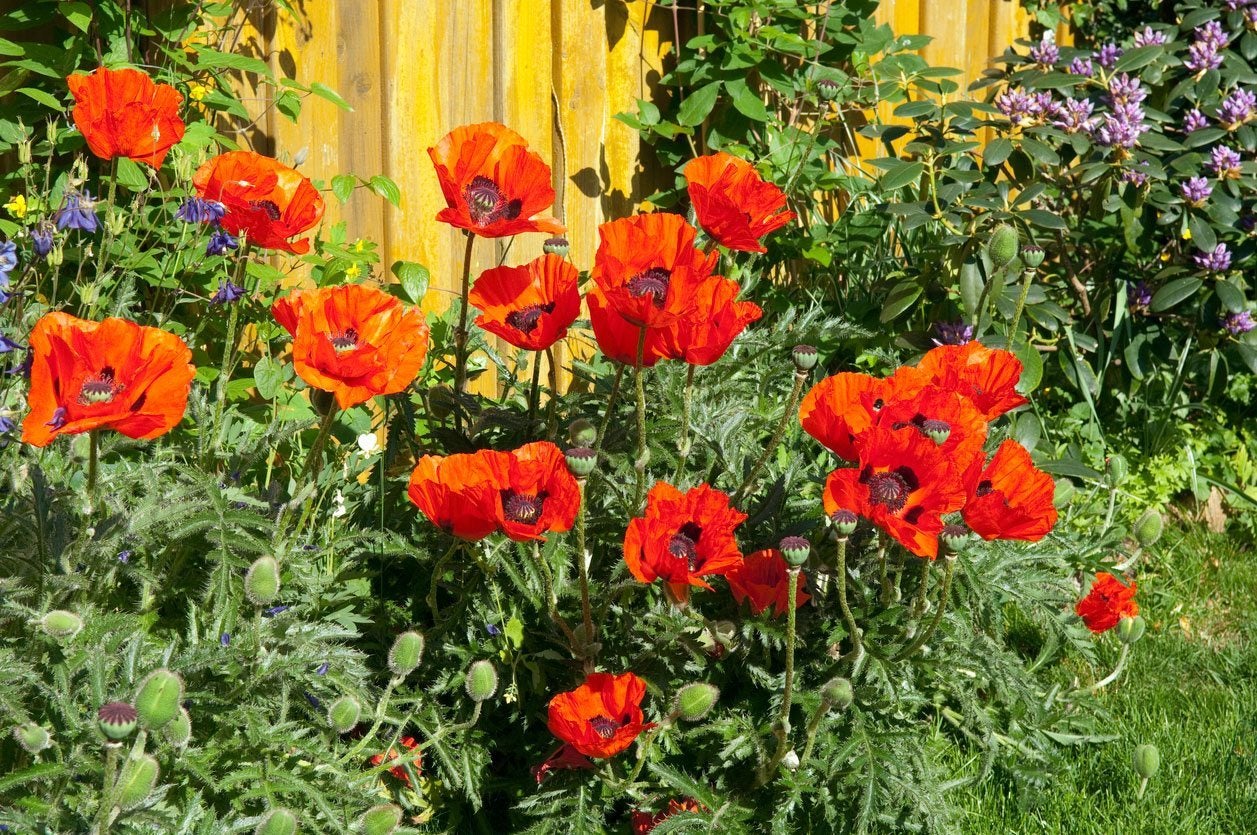No Oriental Poppy Flowers – Reasons For Oriental Poppies Not Blooming


Oriental poppies are among the showiest of perennials, with big, bright blooms that light up a spring garden. However, having no flowers on oriental poppies can happen some years, and it’s a real disappointment.
About Ornamental Poppy Plants
Hardy in USDA zones 3 through 9, oriental poppies are herbaceous perennials that bloom in spring and early summer. They have bluish green foliage that is hairy, thistle-like, and sometimes silvery. They grow quite tall, up to 3 feet (1 m.), and produce large, papery flowers, typically reddish orange, but sometimes pink, white, or even bi-colored. The oriental poppy is fairly easy to grow and does not often suffer from pests or diseases. It prefers a sunny spot with soil that is well drained and moist and does not tolerate extreme heat. During a hot, dry summer, plants may die back and return in the fall. To get flowers on ornamental poppy plants, you have to ensure their needs are met. If they are, you should get showy blooms without much effort or concern about disease.
Why Don’t Oriental Poppies Bloom?
So, what happens when there are no flowers on oriental poppies and why does this occur? There may be several reasons why you are not getting blooms. The simplest answer, if you are new to growing oriental poppies, may be that you haven’t yet gotten to their flowering season. These plants typically produce flowers in late spring or early summer, and although they may die back and regrow in the fall, autumn blooms are rare. If you see your oriental poppies not blooming even during the typical time period, there may be some other issues going on. Transplants take a couple years to establish before producing flowers, so you may just need to wait a little longer. Poppy stalks can also struggle to emerge from mulch, so if you have mulched your bed, try removing it from the area right around the poppy foliage. If these are not the issues, consider checking your soil. Poppies do not like soggy soil, and some gardeners report that overly rich soil can lead to a lack of flowering. On the other hand, your soil may be lacking nutrients necessary for flowering. Check with your local nursery for a fertilizer that is specific to promoting blooms, like bone meal. While there may be specific issues causing your poppies to fail to bloom, the most likely answer is that you just need to be patient. Poppies, in general, are finicky about being moved, so if you have transplanted them, wait a year or two and you should eventually see magnificent flowers.
Sign up for the Gardening Know How newsletter today and receive a free copy of our e-book "How to Grow Delicious Tomatoes".

Mary Ellen Ellis has been gardening for over 20 years. With degrees in Chemistry and Biology, Mary Ellen's specialties are flowers, native plants, and herbs.